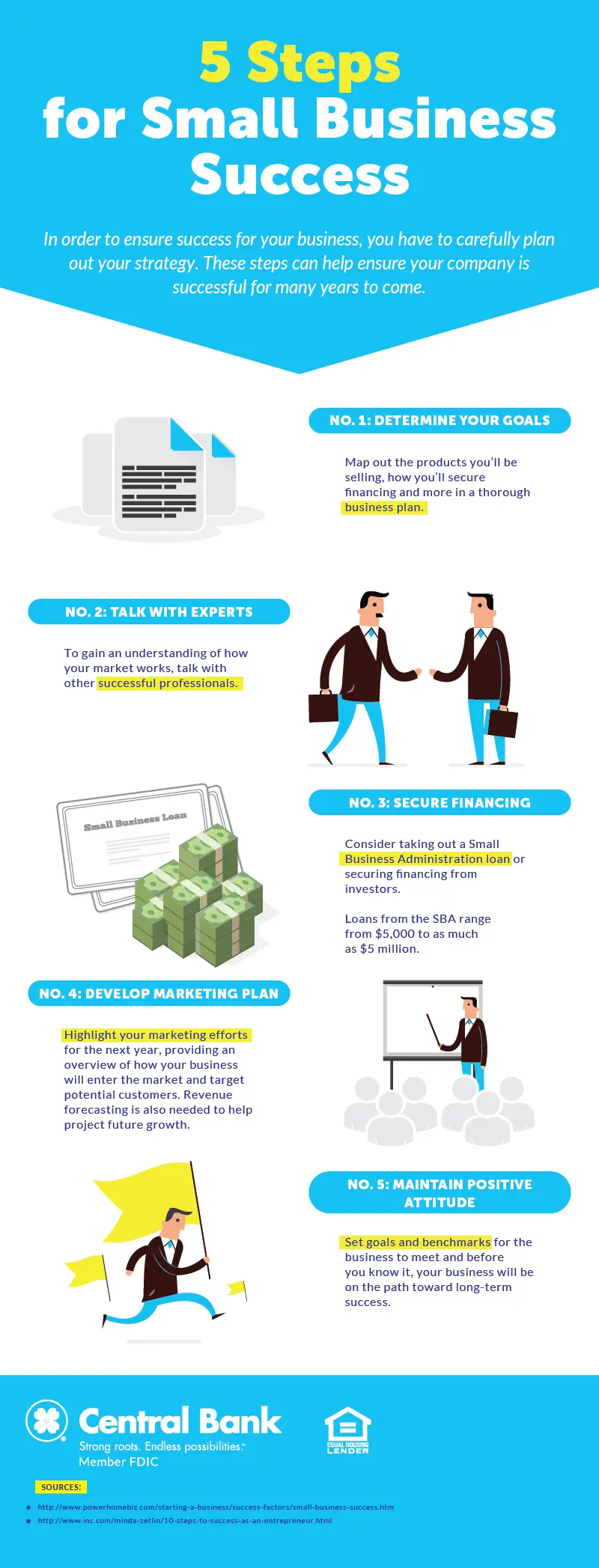What are the key steps to take when starting a small business?


Starting a small business can be an exciting and rewarding venture. However, it can also be a daunting task if you don’t know where to begin. To help you navigate the process, here are the key steps to take when starting a small business:
1. Identify your business idea:
– Start by brainstorming potential business ideas that align with your interests, skills, and market demand.
– Conduct market research to assess the viability of your idea and identify your target audience.
– Consider your competition and how you can differentiate your business from others in the market.
2. Create a business plan:
– A well-thought-out business plan is essential for success. It serves as a roadmap for your business and helps you secure funding if needed.
– Outline your business goals, target market, products or services, marketing strategy, financial projections, and operational plan.
– Include a SWOT analysis (Strengths, Weaknesses, Opportunities, Threats) to assess your business’s internal and external factors.
3. Determine your business structure and register your business:
– Choose the legal structure that best suits your business, such as a sole proprietorship, partnership, LLC, or corporation.
– Register your business name with the appropriate government authorities and obtain any necessary licenses or permits.
– Consult with an attorney or accountant to ensure compliance with legal and tax requirements.
4. Secure financing:
– Determine how much capital you need to start and operate your business.
– Explore different financing options, such as personal savings, loans, grants, or investors.
– Prepare a detailed financial plan, including projected income, expenses, and cash flow, to demonstrate the viability of your business to potential lenders or investors.
5. Set up your business:
– Choose a location for your business, whether it’s a physical storefront, home-based, or online.
– Set up a professional business website and establish a strong online presence.
– Purchase any necessary equipment, inventory, or software to support your business operations.
6. Develop a marketing strategy:
– Identify your target market and develop a marketing plan to reach and attract customers.
– Utilize both online and offline marketing channels, such as social media, search engine optimization, email marketing, and traditional advertising.
– Build a strong brand identity and communicate your unique value proposition to differentiate yourself from competitors.
7. Hire and train employees:
– Determine if you need to hire employees or if you can manage the business on your own initially.
– If hiring employees, develop a hiring process, create job descriptions, and conduct interviews.
– Provide proper training and ongoing support to ensure your employees are equipped to contribute to your business’s success.
8. Establish systems and processes:
– Implement efficient systems and processes to streamline your business operations.
– Set up accounting and bookkeeping procedures to track your finances accurately.
– Develop customer service protocols to ensure a positive customer experience.
9. Monitor and adjust:
– Regularly review your business performance and financial reports to assess your progress towards your goals.
– Make necessary adjustments to your business strategy, marketing efforts, and operations based on market trends and customer feedback.
– Stay informed about industry changes and adapt your business accordingly to stay competitive.
10. Plan for growth:
– As your business becomes established, consider opportunities for expansion and growth.
– Explore new markets, introduce new products or services, or consider franchising or licensing opportunities.
– Continuously innovate and stay ahead of the competition to ensure long-term success.
Starting a small business requires careful planning, dedication, and perseverance. By following these key steps, you can lay a solid foundation for your business and increase your chances of success. Remember, entrepreneurship is a journey, and it’s essential to stay adaptable and open to learning along the way. With the right mindset and strategic approach, your small business can thrive and grow.
Recent Posts
How do I create an engaging and informative online quiz or assessment?
Creating an engaging and informative online quiz or assessment can be a powerful tool for… Read More
What are the most effective methods for managing and reducing work-related stress in the hospitality industry?
Work-related stress is a common issue in the hospitality industry, where employees often face long… Read More
How can I improve my assertiveness and communication skills in a leadership position?
In a leadership position, assertiveness and effective communication skills are crucial for success. Being able… Read More
What are the key elements of a successful employee recognition and rewards program?
Employee recognition and rewards programs play a crucial role in motivating and engaging employees, as… Read More
How do I effectively manage and respond to customer feedback and reviews?
Customer feedback and online reviews play a crucial role in shaping a company's reputation and… Read More
What are the best strategies for effective time management as a stay-at-home parent?
Effective time management is crucial for stay-at-home parents who juggle multiple responsibilities on a daily… Read More